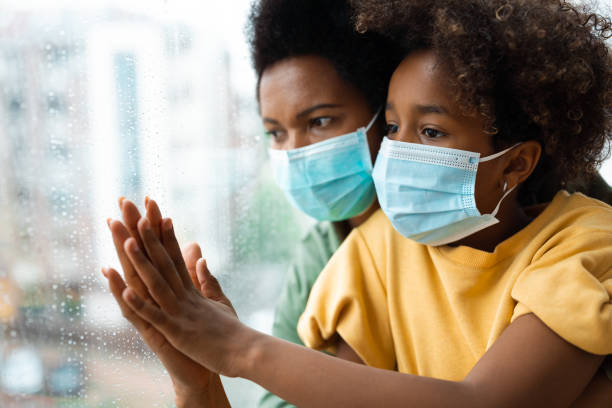
Nearly 9 in 10 children ages 5-11 who were hospitalized for COVID-19 from mid-December to late February were unvaccinated, a rate that was two times higher than for vaccinated children, a new government study shows.
Researchers from the U.S. Centers for Disease Control and Prevention also found that about one-third of hospitalized children in that age group had no underlying medical conditions and one-fifth were admitted to intensive care.
The study included about 400 children, ages 5-11, admitted to hospitals in 14 states during the winter Omicron variant surge. The hospitals serve about 10% of the nation's population.
Among the children who tested positive for the virus before or during their hospitalization, three-quarters were admitted primarily for COVID, rather than other illnesses, the CDC said.
RELATED: U.S. COVID Hospitalizations Pass Last Winter’s Peak
COVID hospitalizations among unvaccinated children
The findings are the latest to show that vaccines reduce children's risk of hospitalization due to COVID-19, even though the shots are less effective against Omicron, the New York Times reports.
The study also suggests that racial disparities in vaccinations may be putting Black children at greater risk for severe COVID.
About a third of unvaccinated children were Black -- the most of any racial group -- and Black children accounted for about one-third of hospitalizations, even though 2020 census data shows that they make up about 14% of children ages 5-11, the Times reports.
Only seven states and Washington, D.C., report race data for vaccinated children from 5 to 11, according to the Times. In most of those states, Black children were inoculated at lower rates than white children, an analysis by the Kaiser Family Foundation found earlier this month.
Among all ages, Black Americans are less likely than white Americans to be vaccinated, the Times reports.
"Increasing vaccination coverage among children, particularly among racial and ethnic minority groups disproportionately affected by COVID-19, is critical to preventing COVID-19-associated hospitalization and severe outcomes," the CDC study authors wrote.
As in adults, Omicron appears to be causing less serious illness in children than the Delta variant. However, Omicron is very contagious and has infected so many children that their hospitalization rates were higher during the Omicron surge, the agency explains.
Only about a third of U.S. children ages 5-11 have received at least one COVID-19 shot, which is the lowest rate of any age group. And there's been a significant slowdown in the pace of vaccinations among children in that age group in recent weeks, according to the Times.
RELATED: U.S. COVID Hospitalizations Pass Last Winter’s Peak
Protecting your child
The following tips from KidsHealth can help protect your child from contracting COVID:
- Anyone in your household who can get a COVID-19 vaccine should do so. Booster shots also are recommended for adults and kids 12 and older.
- Avoid people who are sick.
- Wash your hands well and often, and teach others in your home to do the same. This is especially important:
- when you go back into your home from being outside
- before handling your child
- before breastfeeding or preparing a bottle or food
- Clean surfaces and objects that people touch a lot (like doorknobs, countertops, and cellphones).
- Try not to touch your eyes, nose, and mouth.
- Sneeze or cough into a tissue or your elbow, not your hands.
- Wear a mask at home if you are sick. Try to limit contact with your child until your symptoms are gone.
- If you take your child out in an infant carrier, you can place a blanket over the carrier while it's within your view. Make sure the blanket doesn't touch the baby. Wipe down the carrier or stroller when you get home.






